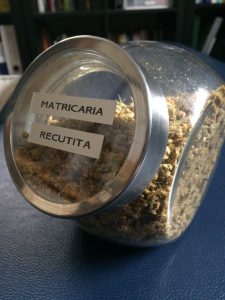 I am delayed in writing my blog because I wanted to have just the right timing. As some of you may know December 1 marks one year of official practice. I would like to take the time to reflect on three of the most powerful tools I have used and how they can help you get to where you want to go. I would also like to thank every patient that has walked through my doors. I have learned something from every person, and every story. I do not say this lightly and I truly mean it. It is through walking with each other that we ourselves can grow. Now, on to the three powerful therapeutic tools . . .
I am delayed in writing my blog because I wanted to have just the right timing. As some of you may know December 1 marks one year of official practice. I would like to take the time to reflect on three of the most powerful tools I have used and how they can help you get to where you want to go. I would also like to thank every patient that has walked through my doors. I have learned something from every person, and every story. I do not say this lightly and I truly mean it. It is through walking with each other that we ourselves can grow. Now, on to the three powerful therapeutic tools . . .
Control
Many people struggle with control and it can cause a lot of undo stress and anxiety. As some of my patients may know, having a type A personality can often result with these struggles with control. What I have found to be helpful is focusing on where your focus lies. If your focus is on what you cannot control, it can cause anxiety, fear, anger, and ultimately stress. However, if you focus on what you can control and shift your focus in these situations, it can help you to better manage these situations. A technique that I often use includes deep breathing and movement exercises (seat changes and hand washing). Control does not just stop here. Recognizing that you have the power to choose your mood should be a huge empowerment piece. You do not have to let your emotions dictate the day, but again shifting your focus can help (and yes I do recognize this is easier said than done, and some individuals may require further assistance in this area).
Positive Thinking
If you are a patient of mine, there is no doubt that you have heard about water, plants, crystal and sludge; and how our thoughts and words can either aid us or hinder us (i.e. Positive words cause crystallization on a molecular level where as negative words cause sludge). It is important to recognize that negative self-talk and thought is not without harm. Negative thought and talk can often lead to things such as increased blood pressure, stress, depression, anxiety, and inflammation – specifically in our neurons. When you have positive thought and talk, you can completely change not only your circumstances but how you feel about them. You can also decrease inflammation and make it easier to choose to be happy regardless of your situation.
Forgiveness
A lot of thinking begin to roll their eyes when I say the word forgiveness. However it is not always about forgiving someone else (though most of the time it can be), it can also mean forgiving ourselves. I find that more often than not there is an element of bitterness, anger, or resentment that people do not recognize is preventing them from having the life they want to have. In addition there are plenty of health effects that can manifest from an attitude of forgiveness (see my previous blog: https://www.plattsvilledoctor.ca/forgiveness-and-health/). If you are struggling with this, whether it is forgiving yourself or another, we can work on some exercises in my office that may help.
Have you benefited from reading this blog? Know someone that would benefit as well? Share, Like, Comment, or Tweet this article, and let me know what you think.
Some of the information provided above may not be appropriate for everyone, please consult with your doctor before trying any of the above. If you are interested in Naturopathic Medicine and wanting a different approach to your health care needs, contact Dr. Elisha Cook ND by calling 519-537-7058 and book your appointment today!


